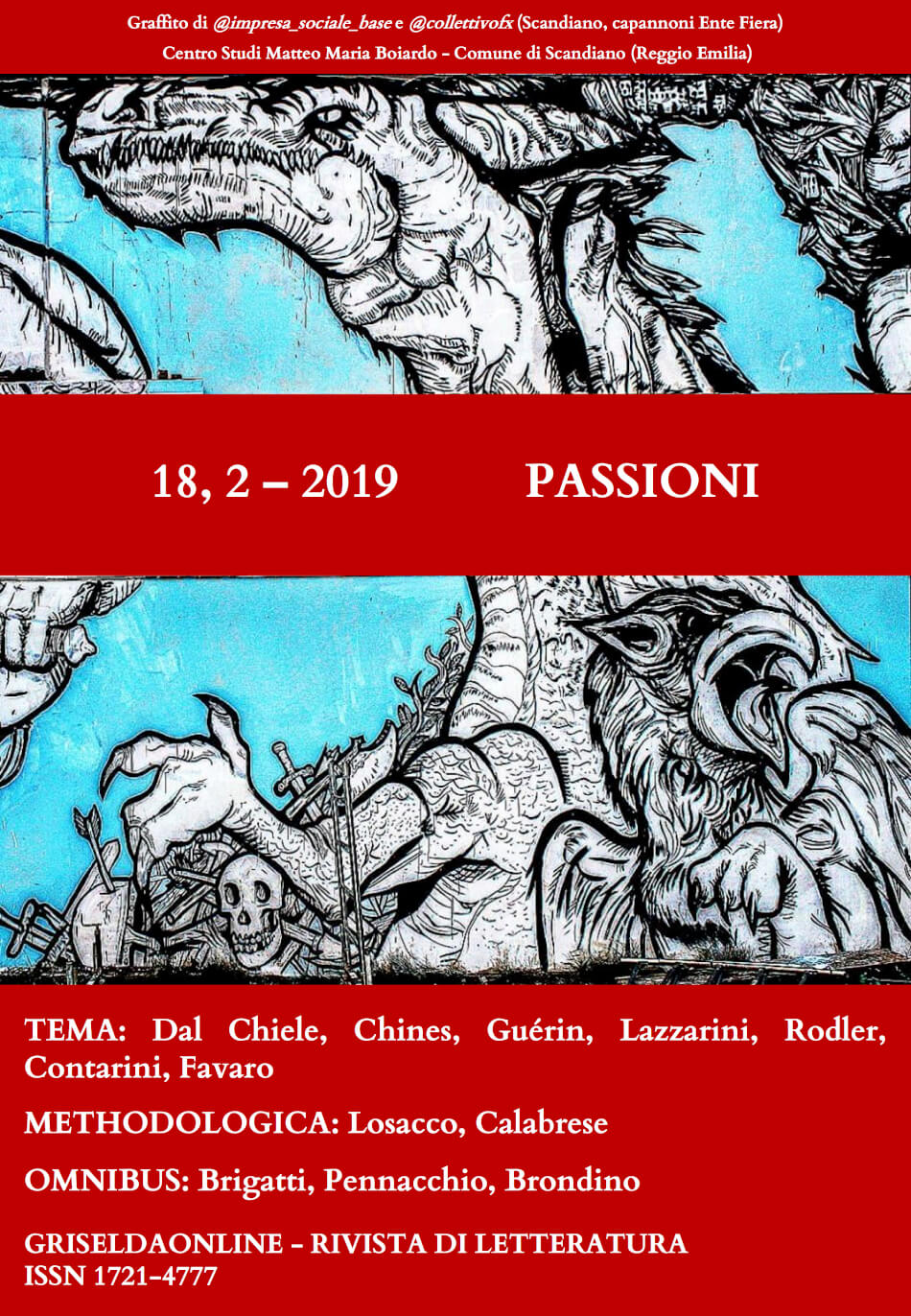La passione, motore e freno nell’«Elegia di madonna Fiammetta» di Boccaccio
DOI:
https://doi.org/10.6092/issn.1721-4777/9840Keywords:
Boccaccio, Elegia di madonna Fiammetta, amore, passioni, temporalità, narrazioneAbstract
Madonna Fiammetta, the protagonist of the Elegia (homodiegetic) dedicated to her by Boccaccio, announces in the prologue she wants to «tell her cases» («narrare i casi suoi»). After having retrieved two chapters of her very short and passionate love story with her lover who seduced and then abandoned her, it is clear she wants to share with us the swing of her passionate mood states after she had been abandoned by the traitor who gave no longer any news despite his promise to come back. The cyclical trend of sentiments, only interrupted by the tentative of cure (proposed by relatives) or the heroin’s suicidal attempts, which all failed, represent a sort of anti-narration, if the concept of narration is the timely sequential deployment of events aimed to an end. The essay, after analyzing the paradoxical temporality of the elegiac narration, elaborate on the meaning that narration can have in such a contest.
Downloads
Published
How to Cite
Issue
Section
License
Copyright (c) 2019 Philippe Guérin
Salvo dove altrimenti specificato, i diritti d'autore di tutti i testi nella rivista appartengono ai rispettivi autori senza restrizioni.
La rivista è rilasciata sotto una licenza Creative Commons Attribuzione - Condividi allo stesso modo 4.0 Internazionale (licenza completa).
Vedere anche la nostra Open Access Policy.
Metadati
Tutti i metadati dei materiali pubblicati sono rilasciati in pubblico dominio e possono essere utilizzati da ognuno per qualsiasi scopo. Questi includono i riferimenti bibliografici.
I metadati – riferimenti bibliografici inclusi – possono essere riutilizzati in qualsiasi formato senza ulteriori autorizzazioni, incluso per scopo di lucro. Chiediamo cortesemente agli utenti di includere un collegamento ai metadati originali.







